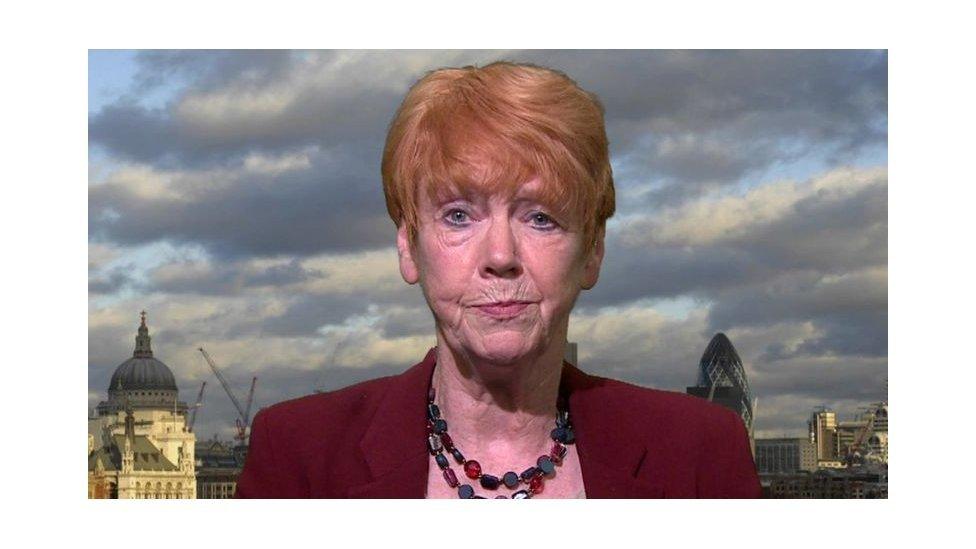Britons killed abroad: UK support 'patchy' for grieving families
- Published
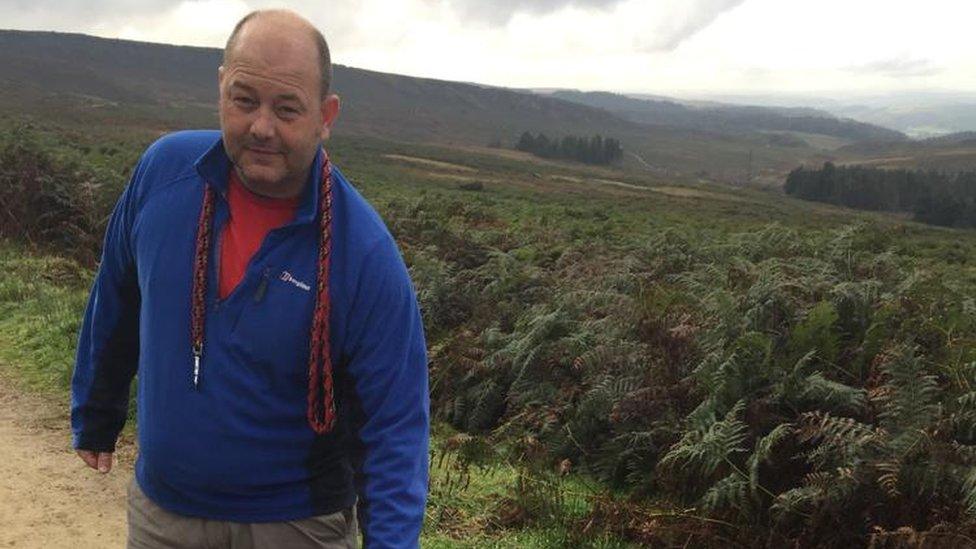
Exactly how Briton Russell Cowan died in Italy in 2016 remains unclear
The widow of a man who died in Italy in suspicious circumstances says the support she got was "like a jigsaw that had not been put together effectively".
Trudy Cowan's husband Russell, 44, from Derbyshire, died of "catastrophic" head injuries during a trip in 2016.
She says her family was "essentially left on our own" by the UK authorities.
Her comments come as a report from the victims' commissioner for England and Wales called on the government to offer more help in such cases.
Dame Vera Baird said support for the bereaved was "patchy and sometimes inadequate".
The Foreign Office said it had a team supporting the families of British people killed abroad and would look at implementing the commissioner's recommendations.
Every year between 60 and 90 UK citizens die in suspicious circumstances overseas.
Ex-RAF officer Russell, from Chesterfield, had been in Menaggio near Lake Como with three friends to take part in a classic car rally for charity.
He phoned his wife, with whom he had two children, on Saturday, 4 June, 2016 to say he was going out for a meal and was leaving his phone in his room.
Trudy received a call on the Sunday morning from one of Russell's friends telling her that her partner of 25 years had been involved in an accident and had died.
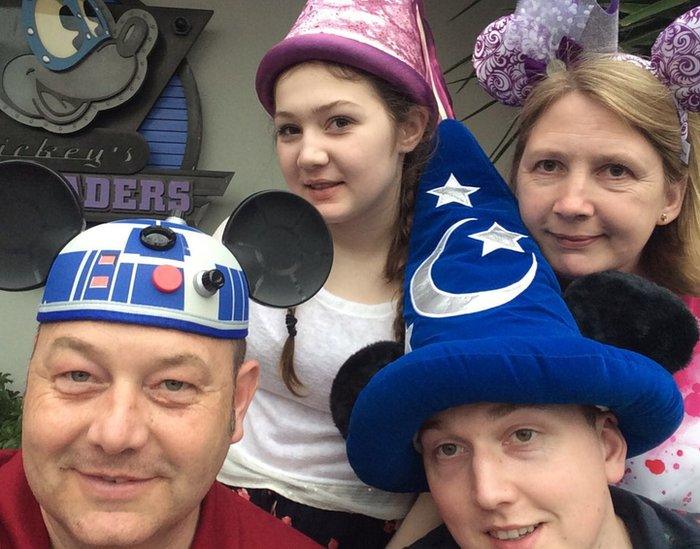
Trudy Cowan (right) says her family were offered no help following her husband's death
"Our priorities were getting to Italy, finding out what happened, and getting Russell back home," she says.
"But the support mechanisms that should have been in place for somebody that had lost someone abroad - they weren't there or available for us."
She says the Foreign Office emailed to say nobody would be coming to meet them or help them with the local police.
The family were not offered a translator or a family liaison officer, she says, while police in the UK said the incident was out of their jurisdiction.
"Everywhere we turned, we were basically told 'I'm sorry but we can't help you'," she says. "It was like trying to swim in a sea of custard, blindfolded.
"It's just not a joined-up approach. It's unwieldy for families that are trying to navigate through a system at a time when you're expected to make decisions at the worst point in your life, when your mind is like a fog."
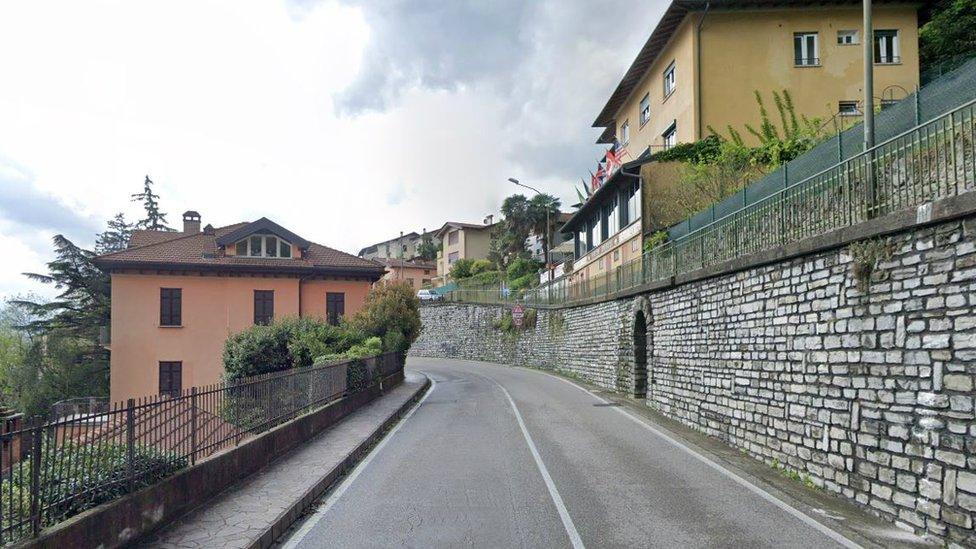
Mr Cowan's body was found at the bottom of a fence by a private villa (left)
Italian authorities concluded his death was an accident after he fell 8m (26ft) from a fence.
But his family do not believe it was an accident - a UK coroner ruled in 2017 that there may have been third party involvement - and an appeal against the Italian ruling is being heard in Como next month.
'Uphill struggle'
Trudy's case was one of those looked at as part of the report published by the Victims' Commissioner on Wednesday.
Despite the dedicated team the Foreign Office set up four years ago to support people whose loved ones were killed or murdered outside the UK, Dame Vera Baird said it was still an uphill struggle.
Her report cites the case of a bereaved mother who said the Foreign Office would not provide an interpreter for a court hearing in case they made a mistake - the family sued them.
A woman whose partner died in India claimed the Foreign Office advised her to have the body cremated rather than repatriated because it was cheaper.
Dame Vera said families should get the same entitlements as they do in the UK.
Among 17 recommendations, she said families of those murdered abroad should be entitled to financial help under the criminal injuries compensation scheme.
The Ministry of Justice said the proposal would be considered as part of a wider review.
Trudy says she "fully endorses" the recommendations, although she says she would not personally have pursued financial compensation.
"As a family we just want the truth. We want justice for Russell," she says.
'Just a number'

Robert Sebbage, 18, was stabbed to death by a taxi driver in 2011 while on holiday with his friends in Zakynthos.
His mother Rhian Sebbage, from Tadley in Hampshire, said she felt "just a number" when dealing with the fallout from his death.
Stelios Morfis was eventually sentenced to 16 years and four months in prison for murder - after three trials and an appeal hearing in Greece.
At the time of Robert's death, the Foreign Office said it was providing consular assistance to his family. But Mrs Sebbage said British diplomats were unable to "intervene" in the case.
"You are on your own," she said, adding that the family were not entitled to help from Greece and had to find and pay for lawyers, interpreters, doctors, hotels and flights themselves.
"We were backwards and forwards for three years after the event. I've never sat down and worked out all the costs, but my husband and I will probably be working for a very long time," she said.
Mrs Sebbage added her husband had to take unpaid time off work after suffering a stress-induced heart attack.
"You're just trying to make sense of it and get your head round it all and move on."
Review of consular services
The Lucie Blackman Trust, which supports British nationals in crisis overseas, said it helps UK nationals with some of the issues cited by the report and urged anyone who is facing those problems to contact the charity.
The Foreign Office said it helped more than 22,000 British people overseas last year, including cases involving more than 4,000 deaths.
"We now have a dedicated team to support families of homicide victims, including funding translation where required," it added in a statement.
"We will look at what more we can do, including implementing many of these recommendations."
The Foreign Office said it had recently conducted a review of consular services and it would set out proposals shortly.
- Published20 August 2019
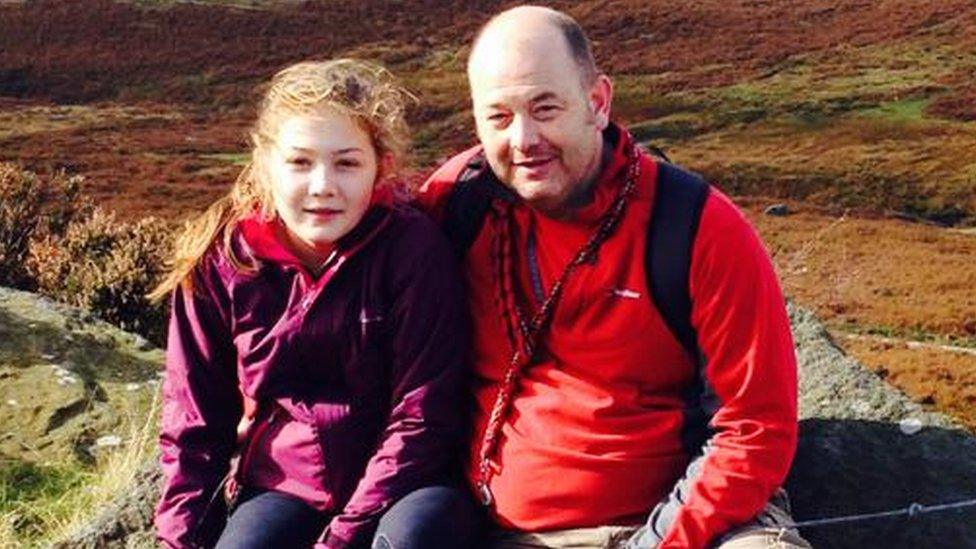
- Published13 May 2019
